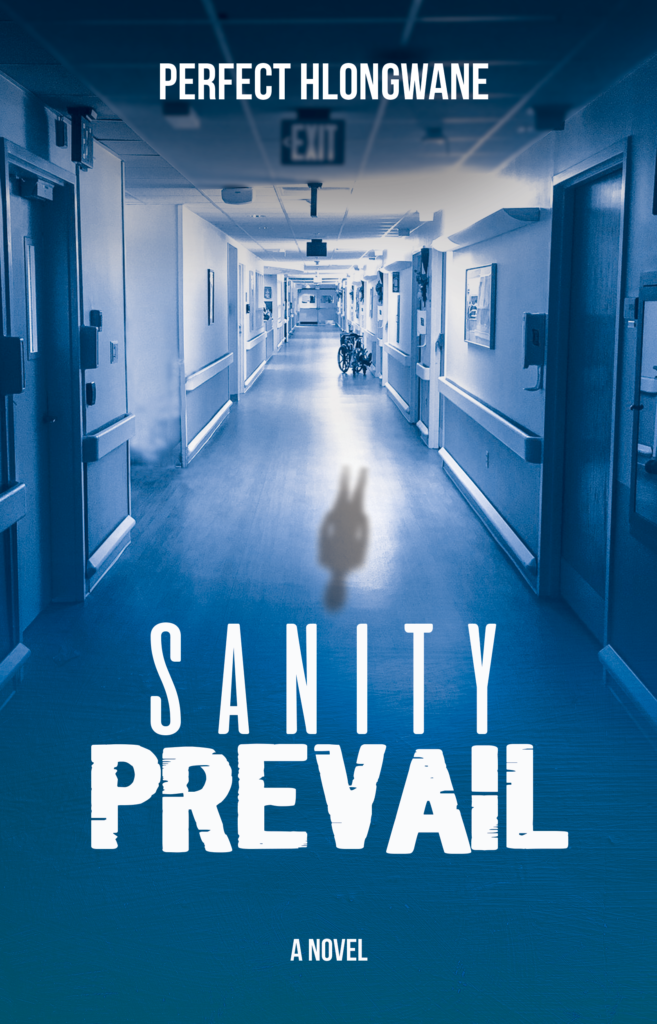
TW: sexual assault, incest, violence
Chapter One
‘Ungasabi,’ the thing says in an androgynous voice. Zena freezes. A sudden teardrop splatters onto the shallow little trench behind the toes of her right foot. Her knees wobble and threaten to give way beneath her, but terror prevents even this – locking her in heavy-breathing rigor mortis. The alien-looking thing is a sinewy dwarf with a huge silver metallic dome for a head. In facial features a child, but also unmistakeably ancient. It is standing just inside her door, a goblin with an oversized head.
Long, winding arms are covered with what looks like shiny, interlocking shells of various shades of blue. The expansive forehead? A crusty plate of bronze. Purple veins pulse and throb on the steaming, almost-haloed head – energy, heat, something, definitely – alive right around the dome.
Zena backs away, trembling. She inches into the corner of her small room farthest from the zinc door with peeling green paint, and stands there. Shaking. Unable to take her eyes from the thing just inside her door, but incapable of facing it squarely. Panic creases her forehead in zigzag furrows, folding and pooling sweat that drips down between her eyes.
A perspiring swamp in her armpits soaks through the thin fabric of her nightie, sending little spears of trembling cold down her arms. She must be dreaming or hallucinating.
This thing that is in her room… Visible. Audible. It cannot possibly be real. Zena’s feet are unsteady on the bed, which she doesn’t remember climbing onto. It becomes clearer to her with each long, fleeting moment that she is indeed fully awake. How is this so? How is this not a dream? She wishes that she could evanesce into the cold wall against which her spine, wet with sweat, is quivering.
To be outside her room right then, to be far away from it- she would give anything for this. The odd creature remains perfectly still, looking steadily at her.
‘You are mad. You are seeing things,’ Zena whispers to herself. And perhaps to someone else. Someone, anyone; anything within hearing, within reason…
‘You are mad.’
She whispers it to herself as loudly and as silently as her heart is pleading it. Barely audible. Parsing the words out in separate pieces, so that they might become real. Softly, but pealing through the room like a church bell in the silent dawn- the way a pearl might shine in some unknown deep. Rather that. Rather mad. Rather anything but that this thing should be real. Real and here, in her room.
This thing that has just told her not to be scared. This thing in her room. This thing is alien. Surely this thing is alien. And of course everyone knows that aliens don’t really exist. No? Or if they do, well, not in real life. In movies and books, aliens are alive. In imaginary, fictional worlds. I mean, they are even welcome, there. Welcome diversions. Entertainment. Zena had watched some series about aliens once or twice, at her uncle’s place, as a child. She had become obsessed with an old movie in her early teens – ET. She had found the DVD while visiting said uncle in the city, on one of the few occasions she’d been out of Sandlwana. Sandlwana, the small rural village nesting below Izintaba zoKhahlamba, the mountain range in whose majestic shadow she had grown up. Will the alien thing in her room allow her to live to see Sandlwana again?
In movies. That’s where things like the strange little creature belong. Not in her room. Not in her life. Humdrum and dreary as it had been, Zena’s daily grind up to this point flashes before her. It seems peaceful now. Desirable even. Enviable, in the terror of the present moment. The commonplace, predictable days she had grown to dread seem now a gift of inestimable value. No man, she must be dreaming.
‘You are dreaming dammit,’ Zena whispers.
Just one problem though. She clearly isn’t. And the strange, frightening thing is there still. Unmoving. Perfectly calm. Standing just inside her door.
And then it speaks again, with a voice that is old but clear. Remarkably, the language it is using continues to be Zena’s own.
‘Kuthiwe ngikutshele ukuthi lokhu esizele ukukucela, awuphoqelekile ukuthi ukwenze.’
How is it that she is being addressed in her mother tongue? Oh for heaven’s sake! What is the meaning of this hallucination that refuses to end? Why can she not wake up and dash this nightmare onto the cold rocks of reality?
Zena suddenly becomes conscious of the staleness of her breath. She clamps her mouth shut to make sure there is something, heck, anything that is still within her control. Her lips close firmly, obeying. But the relief of succeeding in doing this turns suddenly to consternation – because surely it means that she is in fact awake? And that therefore the thing her eyes are seeing, and her ears hearing, is undeniably real? Wave after wave of fear crashes in crosscurrents, punching through her chest.
‘But I’m not a coward, I’ll never be a coward,’ her heart whispers stubbornly within her.
And her heart tells no lies. Ordinarily, this is indeed so. She is a rather fearless young woman. But that too begins to morph into another rabbit hole… Why is she thinking rationally? How can she be remembering things about herself with such surety, in this bizarre, unreal moment? This means that she is clearly and beyond all doubt awake, does it not? Zena begins to be more and more afraid of the fact that she is not in fact even more afraid than she feels. Given the circumstances, she ought to be in an incoherent panic, surely? It concerns her to realise, with each passing moment, that she isn’t. Or is she?
Zena suddenly feels very annoyed. Quite angry, in fact. She clenches her jaws and purses her lips and tries to order her thoughts. Here is this imposition on her morning routine that seems to have no regard for her… for what is important? Resolving to no longer dither about what is real and what is not, she sets her mind firmly on doing what the moment requires of her practically. That is what is important. In short, she needs to shower. She needs to get dressed. She needs to get to work. She can’t be late for work again.
Zena counted it as the grace of God, the mere fact that she had a job. Almost everyone else in her family was unemployed. Trapped in rural Sandlwana, where hope and despair combined to make the days longer than seemed normal. She’d started as a cleaner at the company where she worked, and had finally scored a desk job when it was confirmed that she could type. She had taught herself how to type a few months after arriving in Jozi. She had done this on a laptop her brother Zakhe had come back with, returning from one of the nightly forays that unemployed young men in the city chose or were chosen by. And so, despite having started as a cleaner she was soon working with the data capturers on the third floor; a combination of what her late grandma used to call, ‘God and your own two hands.’ Gago. Who had taught Zena almost everything she knew about life.
Zena and her twin brother Zakhe would never have left Sandlwana if uGog’ Khanyile had not died. Although she was well into her 80s when she passed on, the old woman’s death had still caught them by surprise. She had been so agile still. So full of wit and vitality that she seemed indestructible. Gago. Gago would have been terribly disappointed to see someone she had raised becoming a serial latecomer at work.
‘But there is a strange thing in my room today! What am I supposed to do?’
Zena heard her words bounce loudly off the walls, and then come back to ring in and sting her ears. She hadn’t meant to shout. The alien thing, however, seemed quite unperturbed.
‘Angiyona into. Ngithathe njengesivakashi ongasaziyo,’ it said.
Zena half-cursed then clamped her mouth shut. She tried to shut down the tumult in her mind. She reached resolutely for her towel, feeling relieved when the creature shifted smartly out of her way as she moved towards the door.
‘Sizimisele ukukubonga, uma nje uzosisiza. Kuthiwe ngikunike lokhu,’ the alien thing said. The visitor, as it apparently preferred to be called.
In spite of herself, Zena paused just outside the doorway of her small room and turned to look back at the scaly, wiry, held-out hand. There, in the pit of the shimmering, light-blue palm rested something the size of a large raisin. A little stone, gleaming in the sunlight that was beginning to peek through the clouds overhead.
‘Ilokhu enikubiza idayimane,’ the leprechaun with a big head said.
‘Why am I losing my mind like this,’ Zena thought impatiently?
She glanced around agitatedly, then back at the strange creature with the sparkling stone in its extended hand. Fear struck her then, again, like a crunching blow from behind – hunching her shoulders in involuntary, recoiling fright. She let out a shriek and jumped, and swivelled away, and marched toward the outside toilet and shower area a few steps from her room.
The water was, as always, cold. She showered quickly, trying not to think. Emerged from the shower wrapped in her towel and walked the few paces back to her room, and pressed down the handle – pushing the door open with trepidation. She was shaking with the after-burn of ice-cold water and the bizarre events of the morning.
Inside the room, the strange creature was nowhere to be seen. But there, on the floor, was the ‘diamond.’ Zena took the tiny diaphanous stone and put it in her handbag, and tried not to think why she was doing so. She got dressed quickly and stepped out into the morning breeze, inhaling deeply as she always did in the crisp morning air.
Something about the city in the early mornings always reminded her of Sandlwana. Memories of dim, deep-winter mornings when the snow-capped peaks of the Drakensberg seemed to form a visible overpass in the sky, as she followed Gago outside to make the day’s first fire. Something about this air, this early-morning air, although beginning to close, it must be said, with the smog of factories and early-morning traffic after the night’s momentary reprieve, reminded her of her childhood. Recalled flames and smoke, and the dark and damp beginning to rise up and away from the small heap as Gago worked her cold-and-chill-defying magic – while Zena looked on in childlike wonder, throwing twigs into the crackling miracle. But she was running late today, and this was no time for reverie. As she turned the first corner, Zena clenched her jaws and subconsciously straightened her walk.
Which is to say that she tried to arrest a swaying that came naturally to her hips. It was time to face the daily torture of walking past the shop-cum-game-arcade, where young men hung around day and night and spilled out onto the street, harassing every young woman that happened to walk past. She ignored them of course. But what did that actually mean? It certainly didn’t mean that she did not hear. That she did not fear. It didn’t mean that she didn’t burn with rage over the men’s meanness and frivolity. And it certainly didn’t mean that, by ignoring them, she felt safe.
It’s just that ignoring them was less risky than taking them on. Than showing them that she was rattled or annoyed. Because that reaction was always like fanning the flames of a burning pile of trash, making the men proceed to catcall and pursue you with a sense of renewed purpose and rising merriment.
Every now and then, one of the pack would go so far as walking beside you – sometimes even touching you. For what seemed like endless paces. Tapping your shoulder. Pulling your hand. Patting your bum. Usually this kind of attacker would be reeking of beer, rambling on about how much he loved you. How much he wanted you. All the lewd things he needed to do to you.
Zena knew that these men viewed their behaviour as a bit of harmless fun. She also knew that this was daily torture. This ritual where one was a piece of flesh at the altar of their lust and boredom and disrespect was one of the things she hated most about her life in the city.
There were also some things about her life in the city which she felt she ought to love, but which she hated despite that realisation, like the job that kept her alive. Yes, thank God for it, but it was dull. Hideous. An endless monotony that involved typing out consumer research figures of products that mostly seemed to her to be wonderful luxuries. It was like cataloguing the spending habits of the people who were doing the real living…
The strange incident in her room earlier played itself out repeatedly in her mind, as Zena climbed into the mini-bus taxi that would take her to work. She made her way to the backseat, quickly averting her eyes from the smile of a young man sitting just inside the sliding door. She was running late, but luckily the taxi was full, and so the driver wouldn’t be stopping to pick up more passengers as he wound his way down to the CBD. The busy early morning traffic gave the driver countless opportunities to attempt all sorts of perilous manoeuvres along the short, steeply descending route – dangerous chances he seized, every time, with a sort of habit formed glee.
Zena opened her handbag and sneaked a peek at the gleaming stone. Probably just a lousy piece of glass. She tried not to dwell too much on the strange morning she’d had. But why hadn’t she thrown the piece of glass away? And what on earth was that living, breathing, talking thing in her room, earlier? Honestly…
An elderly woman sitting next to Zena was eating a banana while talking on her cell phone. Zena closed her eyes as the sounds of munching slopped hard against her ears. She was tempted to cup her ears shut, but didn’t want to come across as rude. Still, the nauseating slip-slop mish-mash of the old woman’s talking-while-eating was not ending. Soon enough, the young man sitting by the sliding door took up the issue everyone in the taxi was avoiding.
‘Shut up mama,’ he said- turning half around and craning his long neck above the heads that were blocking his view from the old lady in the backseat. Indeed, she was old enough to be his mother, but this acknowledgement was the only concession the young man was prepared to make to civility. The old lady continued talking into her phone, unbothered.
‘Hhay’ suka sies maan wena mama!’
‘Mawudla idla! Mawukhuluma khuluma! Ungazos’dina ek’seni la!’ he snapped. A few passengers in the cramped taxi murmured their agreement. Shook their heads. Giggled.
‘Wothi ng’buye ngik’shayele,’ the old woman said into her phone and then, spittle-spray sending those in front of her ducking for cover, she let fly a tirade of insults which ended with the observation that the young man was the spawn of a prostitute. There was some laughter and more shaking of heads. It struck Zena that nothing unusual was taking place. She always thought that these kinds of confrontations were unavoidable. What with 16 adults squashed into a tiny minibus taxi.
Zena slid open the window beside her as the taxi swerved back into its own lane, narrowly missing an oncoming truck. The smell of banana and morning breath and sweat gave way as a welcome gust of wind rushed in. The building where she worked was coming into view. Zena was running 20 minutes late.
‘You are here, my favourite daughter,’ the chubby, slightly greying man who was entrance security at her job said by way of greeting.
‘Hello, baba,’ Zena answered as she rushed for the lift. The jovial old man always made her smile whenever she arrived at work. His easy and cordial way told you that he had probably been at his post longer than most of the company’s employees.
He greeted everyone warmly, and with an encoded reference to their age. Some of the older staff were his brothers and sisters. All the younger ones were his sons and daughters. Older men like the entrance security guard, uBab’ Khumalo, were such a welcome relief to be around. Well, some of them. Those whose eyes were not rabid with lust when they wandered over your body with unconcealed heat. Those who called you ‘daughter.’
It had been like this when Zena was a child. Every adult was your mother or father in the village of Sandlwana and its surrounds. Whether they were related to you by blood or not, they treated you like you were their own child. And they expected you to treat them like a parent. But that was home. Too far away. Too long ago. Was it still like that back there?
The first lesson you learned in the city was that… people had to know you in order for them to see you. Unless they wanted something from you, of course. No place so crowded could be so lonely. Johannesburg. But Zena and her brother Zakhe had landed suddenly, and adapted quickly. And they had each other. Zena, named by her mother – who left one day when they were six, and never came back. Zakhe, named by his father – who neither of them could remember.
Her twin brother Zakhe is in prison now, Zena tells me. He fell into crime when they were homeless and alone, and never looked back. By the time they were able to move into a rented room in Doornfontein, Zena tells me, she knew her brother was breaking the law. After a while he stopped even pretending to be looking for a job. Unable to resist the lure of small precarious scores made in the still of the night, usually at the expense of some fellow struggler. He slept almost all of every day, spent all his nights out, and sometimes returned carrying nothing but a foul mood.
Some days he came back with a little money. He would place it on the raggedy wooden table, the only furniture they owned apart from a thin double mattress on the floor. He stopped talking to her except to ask her to buy specific things, sometimes, with his ill-gotten gains.
It was the wall of silence he built, she realised, in order to shield himself from her questions. Her entreaties. Her fears, and his own. She was, Zena says, painfully aware that the little scraps of cash he made kept them alive. This meant they could at least eat and pay rent for the dingy little room. Zakhe also started drinking, and smoking who knew what. Often he came back at dawn incoherent and unstable. Zakhe, whom she used to know like she knew herself, slowly turned into a stranger, growing more and more distant by the day.
And then, one night, he turned into something else. He had returned at dawn to find Zena huddled in a corner; their mattress gone. The evening before, when Zena had gone out to buy bread, milk and Sunlight Soap, their room had been burgled.
Reeking of beer and cheap spirits, Zakhe flew into a rage. He blamed Zena for the missing mattress. He yelled and cursed. And then, there, on the cold concrete floor, he raped her.
Zena was near-paralysed with shock and a confusing sense of guilt. She made silent half-hearted struggles, every moment expecting him, who was the other half of her heart, to pull away and ask himself what he was doing? To stop what he was doing. But he didn’t.
He carried on, overwhelming her with his superior strength. Shocking her with how violently he thrust into her- both her wrists locked in the iron grip of his one hand. Zena’s screams were buried so deep inside her, she tells me, that she could not summon a sound. He even forced his tongue into her mouth. And then, Zakhe just rolled over and slept. Snoring loudly, while Zena cried silently and wiped herself clean of blood. Her heart, and her virginity, broken.
She cried, then. Loudly. Uncontrollably. Cried tears that kept coming back each time she thought she was all cried out. Crying for herself. Crying for her twin brother. Crying for their lives that would never again be the same. She cried deeper, she says, than when uGogo had died. I confess I wanted to protest, to ask why she would cry for anyone who could do this to her, twin brother or not. But a bony raised hand seemed to anticipate my misgivings, and bid me hold my peace. And then, while Zakhe was still snoring loudly, with the early sunlight beginning to peep through the thin fabric of a torn-off piece of sheet covering the small window, Zena packed her few clothes in a large Edgars plastic bag. Not knowing where she would go, she left quietly, Zena tells me.
Buy Sanity Prevail: Blackbird Books


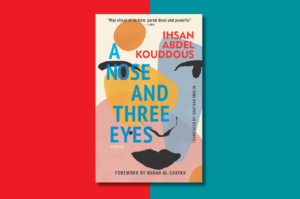
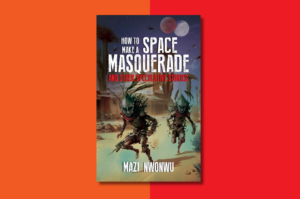
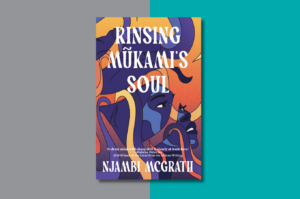
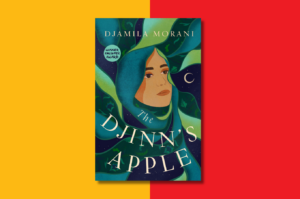



COMMENTS -
Reader Interactions